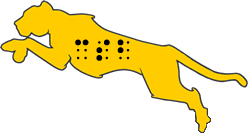Assessment Center
Quick Link
Our Assessment Program
The Assessment Program at the California School for the Blind (CSB) is a statewide resource of professionals who have specific expertise in the education of children and young adults who are blind, visually impaired, or deaf-blind. We provide the following services:
- Parent and Staff Consultation
- Student Assessment
- Professional Development
There are two models of student assessment:
- Center Assessment
- Field Observation/Consultation
Referral questions and a careful consideration of the characteristics and needs of the individual student determine which model is appropriate. The evaluations conducted by the CSB Assessment Center team do not take the place of initial or triennial Individualized Education Program (IEP) evaluations or Independent Educational Evaluations (IEEs). Our assessments are not a part of the IEP process, and our team does not participate in IEP meetings. Our recommendations are made for IEP teams, including families, to consider for IEPs.
Eligibility
- Has a visual impairment which, even with best correction, adversely affects educational performance.
- Has unresolved educational concerns following thorough district assessment.
Our Focus
Areas of the Core and Expanded Core Curriculum form the basis for our service. This may include:
- Functional vision
- Speech and Language
- Cognitive Development
- Academic achievement
- Learning/reading media
- Assistive technology/Augmentative alternative communication
- Technology needs
- Orientation and Mobility
- Recreation and leisure skills
- Independent Living Skills
- Social-emotional functioning
- Self-determination and advocacy
Center Assessment
Referral questions are addressed over three to five days through direct assessment, observations, and parent interviews. Results and recommendations are discussed in a collaborative conference with parents and district professionals. A comprehensive written report completes the process.
This format is appropriate for students who can respond to formal testing on the CSB campus. An apartment is available for family use.
Field Observation/Consultation
Referral questions are addressed during one to two days of direct observation, a parent meeting in the home setting, and discussion with educational team members. A collaborative conference with parents and educational professionals is followed by a written report.
This format is appropriate for students whose strengths and needs are best demonstrated through interactions within their familiar home and school environments.
Consultation and Professional Development
Our staff is available for consultation, group workshops, or trainings to support district efforts and required assessments to provide the best possible education for students who are blind or visually impaired in California. Please review the Consulation FAQs where we have strived to answer many common questions regarding comprehensive student assessment.
If you still have specific questions after reading the Consultation FAQ or are requesting professional development, please fill out the Consult/Training Request and Information
![]() (Google Form) form, and we will contact you shortly.
(Google Form) form, and we will contact you shortly.
Assessment Center Links & Resources
Workshops and Presentations
Workshop and presentation handouts are linked in their respective YouTube description boxes. If you have challenges accessing the handouts, please email May Nguyen at mnguyen@csb-cde.ca.gov.
- BVIPsych Webinar Series
Check the free BVIPsych Webinar Series with topics ranging from giftedness, autism, specific learning disability, deafblindness, mental health, and more! More presentations and panel discussions will be posted throughout the year. - Essentials of Assessing Students with Visual Impairments for School Psychologists
 (Video; 01:57:35)
(Video; 01:57:35)
This recorded webinar from 2024 provides a review of the necessary steps to prepare for the evaluation, best practices for evaluating blind and low vision students, tests and other assessment tools, and possible adaptations. - Designing Impactful and Meaningful Assessments for Students With Sensory Loss Posdcast

This National Association of School Psychologists (NASP) Dialogues podcast was recorded in 2025, featuring evaluation approaches to reflect deaf, hard-of-hearing, blind, low vision, and deafblind students' needs and support more meaningful outcomes. National Association of School Psychologists (NASP) membership is required to access the podcast.
- Essentials of Assessing Students with Visual Impairments for School Psychologists and Speech Language Pathologists
 (Video; 02:18:55)
(Video; 02:18:55)
This recorded workshop from 2023 reviews the necessary steps to prepare for psychoeducational and speech-language evaluations, best practices for evaluating blind and low vision students, tests and other assessment tools that may be utilized with students with visual impairments, possible adaptations, and key components to include in reports. - Psychoeducational Evaluations of Students with Visual Impairments
 (Video; 2:52:31)
(Video; 2:52:31)
This recorded webinar from 2021 introduces best practices essential for psychoeducational evaluations of students with visual impairments. - What's in Your Assessment Toolbox
 (Video; 36:04)
(Video; 36:04)
This recorded webinar from 2021 features a discussion about some of the latest assessment tools and strategies for Functional Vision Assessment, Learning Media Assessment, Orientation & Mobility, and Assistive Technology evaluations. - More Than Meets The Eye: Working With Students With Visual Impairments
 (Video; 42:34)
(Video; 42:34)
This video was created in 2020 to help educators who are new to the needs of students with visual impairments.
- Importance of Aligning VI & O&M Goals with Common Core State Standards | Tuesday Tea
 (Video; 56:43)
(Video; 56:43)
This recorded webinar from 2020 discusses the Common Core State Standards in Technology, Reading, Writing, and Mathematics and how they apply to students with visual impairments. - Standard Scores, What Do They Mean?! | Tuesday Tea
 (Video; 57:17)
(Video; 57:17)
This recorded webinar from 2021 provides a basic overview of standard scores, scaled scores, percentile ranks, and more related to standardized assessments. - The Testing Psychologist Podcast Episode 258

This podcast from 2022 is titled Assessment with Visually Impaired Kids Part 1 with Dr. Carol Evans, Marnee Loftin, Dr. Terese Pawletko, May Nguyen, and Stephanie Herlich. - The Testing Psychologist Podcast Episode 260

This podcast from 2022 is titled Assessment with Visually Impaired Kids Part 2 with Dr. Carol Evans, Marnee Loftin, Dr. Terese Pawletko, May Nguyen, and Stephanie Herlich.
Additional Resources
These resources are offered free to anyone who wants to learn more. Our very own staff contributed to these.
- Using the Johns Basic Reading Inventory 12th Edition in a Learning Media Assessment

Google Classroom Course - A free Google class designed by Stephanie Herlich, MA (CSB Assessment Center Coordinator; Teacher of Students with Visual Impairments and Orientation and Mobility Specialist). The purpose of this class is to provide training on how to effectively use the newly updated Johns BRI 12th edition as a component of the Learning Media Assessment (LMA). This training will help you more accurately assess a student's learning modality and skills, ensuring you select the most appropriate learning media and strategies for educational success. The classroom includes reference documents, sample reports and templates, and practice videos. - Comprehensive Evaluations of Individuals With Visual Impairments from Intelligence Testing of Individuals Who Are Blind or Visually Impaired: Authored by Dr. Jennifer Engle, May Nguyen, Dr. Stephen A. Goodman, Dr. Carol Evans, and Marnee Loftin

This webpage provides guidelines for comprehensive evaluations of individuals with visual impairments published in 2024, including topics on examiner collaboration, ecological validity and the RIOT model, the impact of visual impairment on development, considerations in test selection and administration, considerations for braille and tactile graphics, use of visual stimuli in assessment, adaptation and modifications, and evaluating co-occurring conditions. - Beginning Braille

A six-part webinar series developed in 2020 by Stephanie Herlich, MA (CSB Assessment Center Coordinator; Teacher of the Visually Impaired/Orientation & Mobility Specialist) and provided by California School for the Blind. Beginning Braille is designed to introduce parents, caregivers, and paraprofessionals to the Unified English Braille Code. Participants in this course will learn alphabetic braille, numbers, basic punctuation, alphabetic word signs, and some of the most common short form words and initial letter contractions. Each lesson includes a description, examples, and independent practices with answers. - Cerebral/Cortical Visual Impairment (CVI) - Google Classroom Course

A free Google Classroom course put together by our very own CSB Assessment Center team! This course is self-paced and will provide an abundance of information about CVI. Use class code 265c263 to join. - Psycho-educational Assessments in Children with Visual Impairments (e-book): Authored by Dr. Jennifer Engle, May Nguyen, and Dr. Adam Wilton

This ebook was published in 2024. It is designed for psychologists with expertise in psychoeducational assessment of children and adolescents and provides guidance in applying evaluation skills to assessing blind and low vision students.
Listservs/Mailing Lists
A listserv is a great way for interest groups to connect with others and stay current on new information. Consider recommending or joining our new listserv.
- BVIPsych
 (Google Form)
(Google Form)
BVIPsych is an interactive listserv for school psychologists and mental health professionals serving blind, low vision, and deafblind students. This forum offers a space to share resources and support one another, as we strive to strengthen our clinical skills and practices to assure quality assessments, interventions, and support services. - SLP-BVI
 (Google Form)
(Google Form)
SLP-BVI is an interactive listserv for Speech and Language Pathologists (SLP) serving blind, low vision, and deafblind individuals. This group is intended to be a space for SLPs to share resources, ask questions, and have discussions as we strive to support the communication needs of these unique students. - Resources for Families Supporting Students who are Visually Impaired
The California School for the Blind's Assessment Center team is committed to keeping families and students connected to the visual impairment community and up-to-date with related learning opportunities. This communication will provide links and resources such as webinars, trainings, tips, courses, events, and the latest best practices geared specifically for blind, low vision, and deafblind students and their families.
Application Information
Please contact the center for an application packet at csb.assessment@csb-cde.ca.gov. (If you are only seeking a low vision exam or an Assistive Technology Assessment please contact those departments.) If IEP team members, including families, would like to request an assessment, we require that families and Local Educational Agencies (LEAs) provide access to the relevant records (including Functional Vision Assessment/Learning Media Assessment (FVA/LMA) and triennial evaluation from within the last 3 years), current learning environment, and staff for potential reviews, observations, and dynamic assessments. We require all IEP team members, including a district representative, to attend a collaborative conference to review the evaluation results and recommendations. The collaborative conference is not a IEP meeting.
Assessment Center Staff
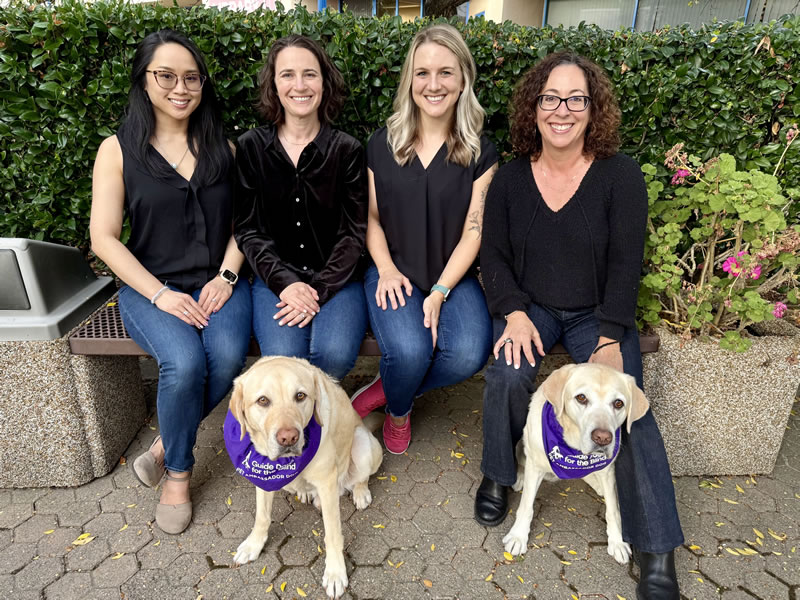
Meet our Assessment Center Staff Team!
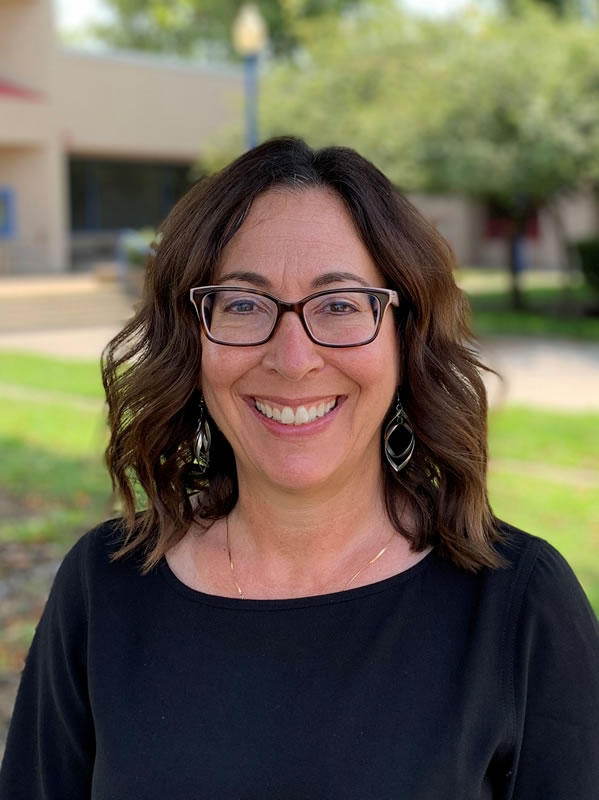
Stephanie Herlich, MA
Coordinator, Teacher of Student with Visual Impairments, Orientation and Mobility Specialist
sherlich@csb-cde.ca.gov
510-936-5524
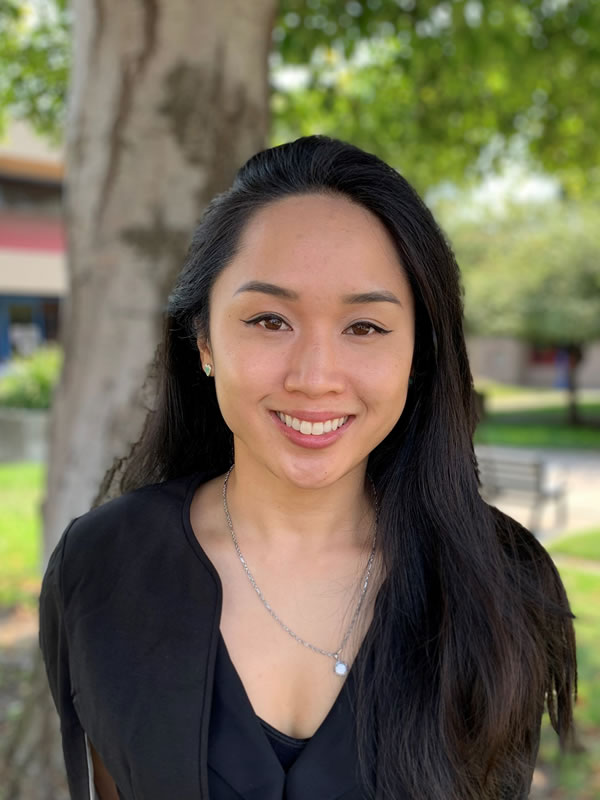
May Nguyen, MS, LEP, NCSP
Licensed Educational Psychologist
mnguyen@csb-cde.ca.gov
510-936-5565
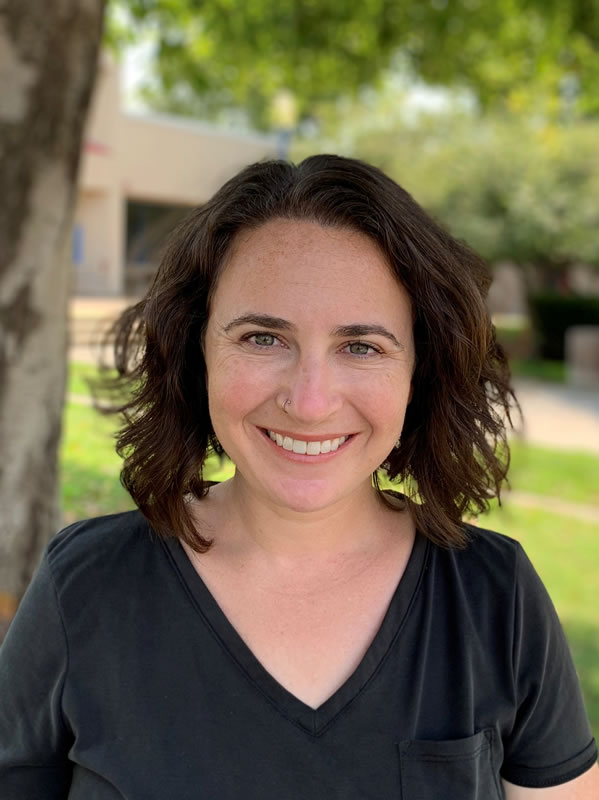
Shelby Kannanaikkal, MA, COMS
Teacher of Students with Vision Impairments, Certified Orientation and Mobility Specialist
skannanaikkal@csb-cde.ca.gov
510-936-5567
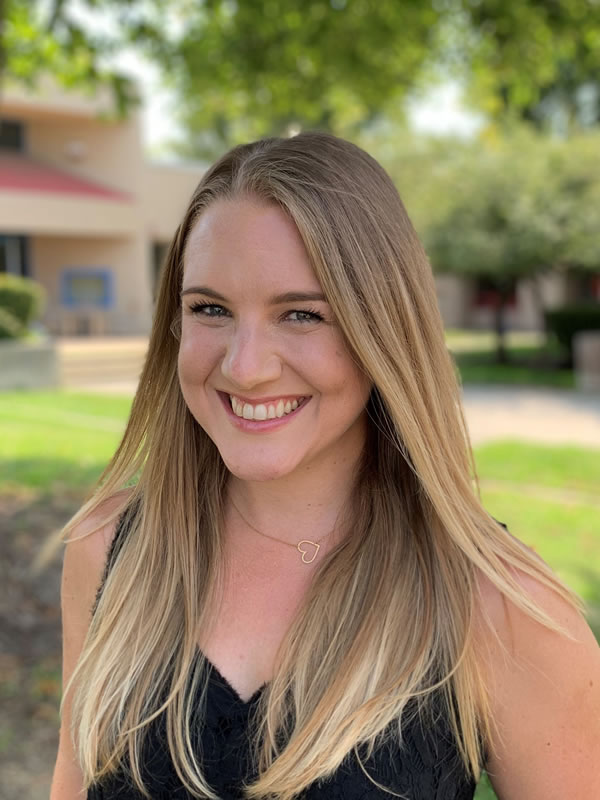
Rebecka Henry M.S., CCC-SLP
Speech and Language Pathologist
rhenry@csb-cde.ca.gov
510-936-5562
Events
- Summer Academies 2026
- California Braille Bee 2026
Wednesday, February 18, 2026
Thursday, February 19, 2026 - Open House 2026
Wednesday, April 22, 2026
- Spring Art Show
Wednesday, May 13, 2026
Thursday, May 14, 2026 - Learning Lab
- Short Courses 2025-2026
- General Tours
 (Google Form)
(Google Form)
Please fill out the Google Form if you are interested in attending any of our General Tour days.
Tuesday, January 27, 2026 at 11AM-12PM
Friday, February 20, 2026 at 11AM-12PM
